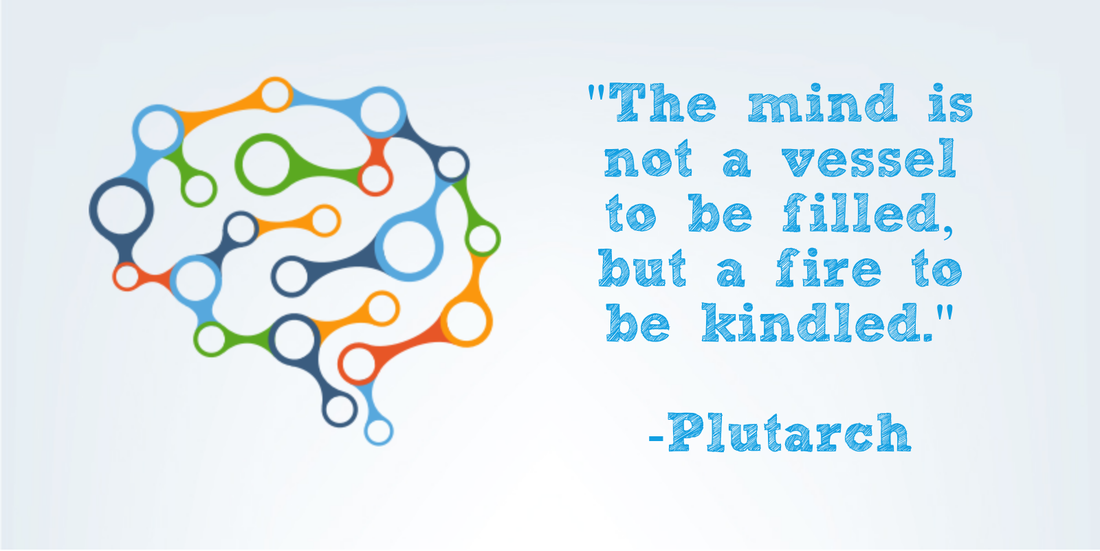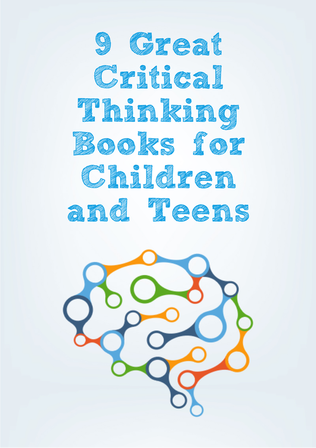Critical thinking seems to be a buzzword when used in the context of contemporary education, yet the skill is sorely lacking in society at large. Poor reasoning often dominates public discourse.
When I say critical thinking, strictly, I'm referring to logic, or the science of how arguments need to be formed in order to be reasonable or correct. I'm also referring more generally to skills like separating truth from falsehood, being able to accurately evaluate other's arguments, being open-minded, and thinking with greater distance (rather than from a dogmatic or emotionally driven mindset).
Classical Education emphasizes the 7 Liberal Arts and Sciences, including the 3 qualitative skills of the Trivium, consisting of Grammar, Logic and Rhetoric. Educator Dorothy Sayers further divided the 3 stages of the Trivium up by the developmental readiness of the student.
From a Classical Education perspective, the appropriate age for a student to begin learning true critical thinking is the Logic stage, roughly age 12-15, or the middle school years. However, I have included books for each of the three stages in my list and also explained why a book is recommended for a specific age group based on developmental skills.
Critical Thinking Books For Ages 5-11
The main goal of the Grammar stage is really to play and explore, to grasp reading and language intimately, and to instill a lifelong love of learning. Grammar is therefore the most important stage because according Plutarch, "The mind is not a vessel to be filled, but a fire to be kindled."
It's important to note that critical thinking books for this age group are not truly (and perhaps should not be) critical thinking materials as defined above (logic), but more like brain teasers, puzzles, questions, books of facts, and simple exercises that help to prepare the child's mind for what will follow later in the Logic phase.
Click on the numbered book titles below to see them at Amazon! It might also be possible to borrow them from your local library.
1. Children's Book of Philosophy (Age 8-12)
A Child's first philosophy book to encourage curiosity, including timelines, biographical information, and beautiful illustrations.
2. 101 Fresh & Fun Critical-Thinking Activities (Age 6-9)
Fun and engaging problem solving activities to help kids begin to think critically and improve communication skills.
3. 81 Fresh & Fun Critical Thinking Activities (Age 9-12)
Brain-teasers and multi-subject activities for recognition, recollection, and evaluation in young Grammar stage students.
Critical Thinking Books For Ages 12-15
Parents can cultivate critical thinking skills by engaging in lively conversation, encouraging their child to inquire and to respectfully dispute. Conversation should focus on finding proper support for arguments, considering alternate possibilities, and not debating issues in an overly emotional or dogmatic way.
4. Cartoon Introduction to Philosophy (Age 11 and up)
This is a really cool graphic novel on the examined life, featuring Heraclitus as the narrator who introduces us to 3,000 years of Western thinkers. The books is actually just as interesting for adults as it is for tweens and teens!
5. The Fallacy Detective: 38 Lessons on How to Recognize Bad Reasoning (Age 11-15)
Teaches kids about common errors in reasoning and how to avoid them. It's also a handy workbook that includes written exercises for kids in the Logic stage of the Trivium.
6. The Art of Argument (Age 12-15)
Helps middle school students learn to think more clearly and to evaluate arguments, especially those from advertisers and others hoping to persuade or maipulate them. Presents logic in a fun, understandable way, while teaching how to reason with clarity.
Critical Thinking Books For Ages 15-18
Students of this age benefit from reading actual philosophy too, although probably not the most difficult authors and texts at first. Not Hegel, at age 15, for example, since most adults have difficulty understanding him! Ancient philosophy tends to be more accessible on the whole.
One further note of caution here. There is some thought that the Socratic Method should not be used until one reaches maturity. Plato thought that it was only appropriate for people age 30 and beyond! If this seems conservative by modern standards, perhaps save it for older high school students or college-age students. On account of this controversy, I haven't specifically recommended the Socratic Method here.
7. A Rulebook for Arguments (Ages 15 and up)
Incredibly popular book about how to assess arguments that also introduces rhetorical and essay-writing skills for older students.
8. Rhetoric Alive!: Principles of Persuasion (Age 15 and up)
The best book of it's kind for teens with a perfect 5 star review on Amazon! Based on Aristotle's Rhetoric, it illustrates techniques on how to become a more convincing speaker and writer. Includes written and oral practice exercises.
9. Mastering Logical Fallacies: The Definitive Guide to Flawless Rhetoric and Bulletproof Logic (Age 15 and Up)
Great guide to formal and informal debate. Don't let opponents abuse logic and still win! This book combines many of the lessons of the 3 stages of the Trivium into instructions for the mature thinker with examples of real life logic gone wrong.
Note: This post contains Amazon affiliate links.
~
You may also like:
Creating Your Ideal Family Culture
6 Tips for Teaching Yourself Philosophy
Stoicism and Virtue in Family Culture











